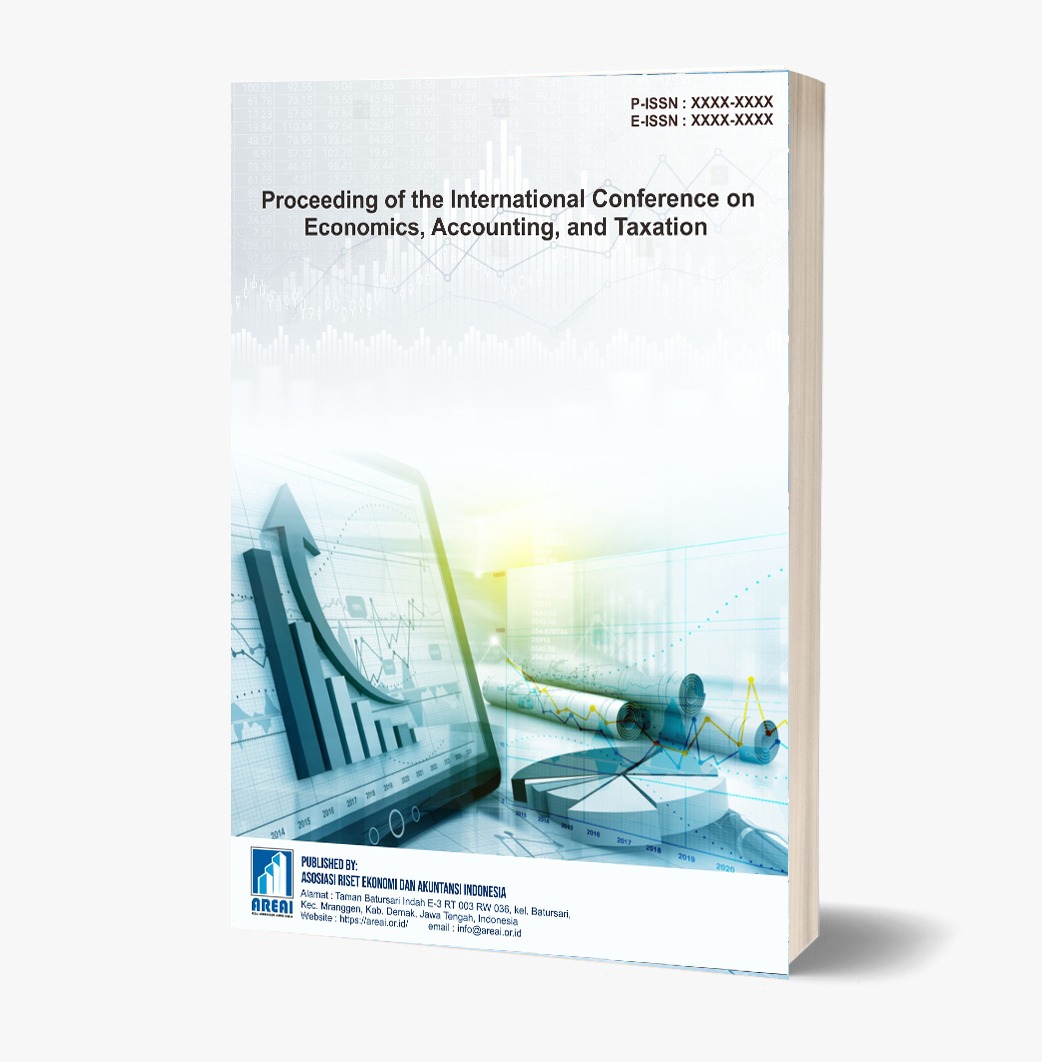Adaptation of Accounting Practices in The Era of Globalization
Cultural Comparison Between Indonesia And Malaysia
DOI:
https://doi.org/10.61132/iceat.v1i1.51Keywords:
Accounting, Globalization, Culture, IFRS, ComparisonAbstract
This study aims to analyze the adaptation of accounting practices in Indonesia and Malaysia within the context of globalization, focusing on the cultural differences that influence the implementation of accounting standards. In the era of globalization, companies in both countries face challenges in enhancing transparency and accountability in their financial reports. The research method employed is qualitative analysis, gathering data from relevant literature, interviews with accounting professionals, and case studies of companies in both countries. The findings of the study reveal that, while Indonesia and Malaysia are working to adopt International Financial Reporting Standards (IFRS), there are significant differences in how the two countries apply accounting practices. In Indonesia, accounting practices are still influenced by local cultural values and a more flexible legal system, while Malaysia demonstrates a higher and more consistent level of IFRS adoption. These findings emphasize the importance of considering cultural and legal contexts in adapting accounting practices. This research makes a significant contribution to stakeholders, including companies and regulators, in understanding the challenges and opportunities in improving accounting practices in the era of globalization. Additionally, it identifies the need for better training and education for accounting professionals in both countries. Therefore, this study is expected to serve as a reference for future research on the adaptation of accounting practices in developing countries.
Downloads
References
Actavia, M.P., (2023). PENGARUH EARNING PER SHARE, INVESTING CASH FLOW DAN DEBT TO EQUITY RATIO TERHADAP HARGA SAHAM PADA INDUSTRI MANUFAKTUR SUB SEKTOR OTOMOTIF DAN KOMPONEN YANG TERDAFTAR DI BURSA EFEK INDONESIA PERIODE 2017-2021. Universitas Batanghari Jambi.
Cahyono, A.T., (2011). Meta teori standar akuntansi keuangan di Indonesia-menuju konvergensi SAK di masa globalisasi. Jurnal Eksis, 7(2), 1884–1897.
Christian, N., Ong, C.M., Wisely, J.V., (2024). Analisis Perbandingan Standar Akuntansi di Negara Uni Emerat Arab dan Indonesia. Jurnal Pendidikan Sejarah Dan Riset Sosial Humaniora, 4(3), 46–64.
Djamil, N., (2023). Akuntansi terintegrasi islam: alternatif model dalam penyusunan laporan keuangan: islamic integrated accounting: alternative models in preparing financial statements. JAAMTER: Jurnal Audit Akuntansi Manajemen Terintegrasi, 1(1), 1–10.
Fadhilah, F., Yunita, A., Anggita, W. (2024). Analisis Komparasi Non-Performing Loan Dan Kinerja Keuangan Pada Perbankan Yang Terdaftar Di Bursa Efek Indonesia Dan Bursa Malaysia. Innovative: Journal Of Social Science Research, 4(1), 12781–112794.
Fatimah, R., Perkasa, D.H. (2024). TANTANGAN DAN UPAYA PENINGKATAN KOMUNIKASI LINTAS BUDAYA PADA PERUSAHAAN MULTINASIONAL (Kajian Literatur Review). JURNAL ILMIAH MANAJEMEN DAN KEWIRAUSAHAAN, 4(2), 55–69.
Fitriani, S., Kusuma, P.S.A.J., (2024). Analisis Komparatif Praktik Akuntansi pada Perusahaan Multinasional: Studi Kasus Laporan Keuangan Perusahaan Terdaftar di Bursa Efek Indonesia. AKUNTANSI 45, 5(2), 29–51.
Gaguk Apriyanto, S.E. (2021). Manajemen Dana Pensiun: Sebuah Pendekatan Penilaian Kinerja Modified Baldrige Assessment. Media Nusa Creative (MNC Publishing).
Herawati, T.D., Novianti, N., & Purwanti, L., (2023). Akuntansi Keuangan Menengah. Universitas Brawijaya Press.
Hermawanto, A., Anggraini, M., (2020). Globalisasi, Revolusi Digital dan Lokalitas: Dinamika Internasional dan Domestik di Era Borderless World. LPPM Press UPN" Veteran" Yogyakarta.
MUKHLISIN, M. (2022). Politik Ekonomi Syariah Dalam Perspektifal-Qur’an (Analisis Sektor Industri Halal Di Indonesia). Institut PTIQ Jakarta.
Nuriyani, E., Mardian, S., (2019). Adopsi International Financial Reporting Standards (IFRS) di Negara-negara Muslim: Perspektif Institutional Theory. Jurnal Akuntansi Dan Keuangan Islam, 7(1, April), 59–80.
NURRIZKI, A. (n.d.). PENGARUH SEJARAH AKUNTANSI DI EROPA, AMERIKA, DAN INDONESIA TERHADAP PERKEMBANGAN SISTEM AKUNTANSI DI INDONESIA (STUDI KASUS PADA PT PANCA ANUGRAH WISESA Tbk.).
Priyastiwi, P. (2016). Pengaruh Budaya Terhadap Akuntansi, Auditing Dan Praktik Akuntansi Internasional. Jurnal Riset Manajemen Sekolah Tinggi Ilmu Ekonomi Widya Wiwaha Program Magister Manajemen, 3(1), 78–95.
Rizal, M., & Kusnanto, E. (2021). Exploring The Challenges Of Implementing International Financial Reporting Standards (IFRS). Journal of Business, Finance, and Economics (JBFE), 2(1).
Setiawati, E., Diana, N., & Mawardi, M. C. (2021). Pengaruh E-Commerce, Pengetahuan Akuntansi Dan Budaya Organisasi Terhadap Kinerja Umkm Di Kota Malang. E_Jurnal Ilmiah Riset Akuntansi, 10(04).
Sugiarti, S. (2016). Adopsi Penuh Harmonisasi Standar Akuntansi. Jurnal Ekonomi Bisnis Dan Kewirausahaan, 5(2).
Ulupui, I.G.K.A., Gurendrawati, E., Murdayanti, Y. (2021). Pelaporan Keuangan Dan Praktik Pengungkapan. Goresan Pena.
Widayanti, A.R., (2023). Implementasi akuntansi kombinasi bisnis sebelum dan setelah adopsi IFRS di Indonesia (Studi Konseptual). AKUNTANSI 45, 4(2), 279–288.
Widiawati, S., Raharja, S., (2012). Analisis Faktor-Faktor yang Mempengaruhi Islamic Social Reporting Perusahaan-Perusahaan Yang Terdapat Pada Daftar Efek Syariah Tahun 2009–2011. Fakultas Ekonomika dan Bisnis.






